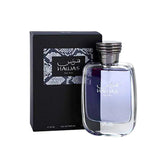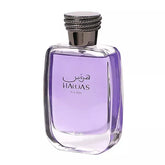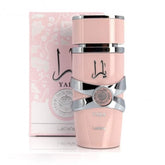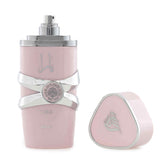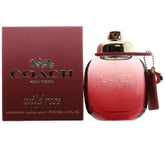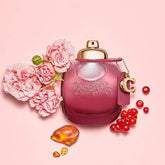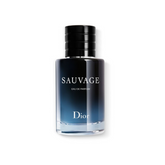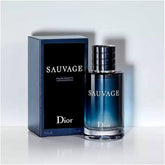Choosing the right scent for the gym isn’t just about smelling good – it’s about staying fresh and feeling confident during and after a tough workout. Perfume and deodorant serve very different roles: deodorants neutralize and mask body odor (often using antiperspirant ingredients), while perfumes simply add fragrance. In fact, deodorant’s main job is to control body odor, whereas perfume’s is to enhance your scent. In this article, we’ll explore the key differences between perfume and deodorant, how each performs during exercise, health considerations, and which one truly lasts longer. We’ll also share tips for staying fresh at the gym, market trends for active lifestyles, and recommend gym-friendly fragrances for men, women, and unisex preferences. Whether you’re shopping for the best perfume for gym and workout or simply looking to order perfume online, read on to make an informed choice for your next sweat session.
Perfume vs. Deodorant – What’s the Difference?
Perfume and deodorant differ fundamentally in composition and purpose. Perfume is formulated as a complex blend of fragrance oils, alcohol (or water), and sometimes fixatives, with a high concentration of scent – for example an Eau de Parfum contains roughly 15–20% aromatic oils. In contrast, deodorants (and antiperspirants) contain much lower fragrance levels (often under 5–10%), plus ingredients like alcohol, antimicrobial agents, and aluminum salts to reduce sweat. In practical terms, perfume’s job is to leave a lasting scent, while deodorant’s job is to neutralize odor and control perspiration. Perfumes are applied lightly to pulse points (neck, wrists, etc.), whereas deodorants are applied underarms or on the body where sweat accumulates.
The table below summarizes these differences in composition:

Perfumes usually have a richer, longer-lasting fragrance (even a light spritz of Eau de Parfum may last most of the day), while deodorants focus on drying out the skin and killing odor-causing bacteria. Because their roles differ, deodorant cannot truly replace perfume and vice versa. Many people layer an unscented (or lightly scented) deodorant with a subtle cologne to cover both needs.
How Do They Perform During a Workout?
During exercise, body chemistry and sweat can affect fragrances. Sweat can dilute or alter scents and even cause irritation if perfume is applied to hot, humid skin. In fact, experts note that spraying perfume directly onto warm, sweaty skin often leads to a stinging sensation, as the fragrance alcohol reacts with heat and salt. In practice, a heavy perfume may smell different when you’re sweating and can sometimes become overpowering.
Deodorant (especially with antiperspirant ingredients) is designed for active use: it absorbs moisture and suppresses odor-causing bacteria underarm. This means deodorant continues to control odor as you sweat, though most formulas (even long-lasting ones) wear off after several hours. By contrast, a perfume’s scent will fade more quickly when the body is warm and moist. Sports-themed fragrances have emerged with this in mind: they tend to feature clean, citrus or aquatic notes that feel refreshing and are formulated to hold up “under sweat”. Many sports scents are even unisex – balanced, neutral blends that appeal to anyone.
In a workout setting, the best approach is usually to apply deodorant before you start and use only a light fragrance. Avoid heavy colognes or perfumes with deep musky or oriental notes at the gym, as these can mix oddly with sweat. Instead, opt for sprays or mists with citrus, mint, or green notes that complement an active atmosphere. For example, sports lines like Versace Eros Energy (fresh citrus) and Rasasi Hawas (aquatic) are recommended because they feel clean and energetic during workouts. Ultimately, deodorant controls your body odor while fragrance provides a personal touch of scent – combining the two (e.g. unscented antiperspirant + a spritz of gym-friendly cologne) keeps you fresh without overwhelming others.
Health & Skin Considerations
When using fragrances during workouts, skin health is important. Sweating changes your skin’s pH and makes it more permeable; applying perfume on hot, moist skin can cause irritation or a burning feeling. To avoid this, apply perfume only on dry, rested skin (for example, a few minutes after cooling down or on freshly showered skin). In fact, experts advise not spraying perfume on sweaty, warm skin – instead, wait until you’re dry or apply fragrance to clothing or pulse points once you’ve cooled off.
Deodorants and antiperspirants can also irritate some people, especially if applied right after shaving. The Cleveland Clinic notes that both can cause skin rash if used on freshly shaved skin or when not fully dry. To minimize irritation, use a gentle, unscented moisturizer under your fragrance, and choose hypoallergenic formulas if you have sensitive skin. You may have heard concerns about aluminum in antiperspirants, but reputable sources confirm no proven link to cancer or serious illness. In short, applying deodorant on clean, dry underarms and spraying a light cologne on pulse points (avoiding any nicks or rashes) is generally safe for most users.
Remember also that perfumes contain dozens (even hundreds) of ingredients, many of which are chemical irritants or allergens. About 30% of people report perfume-related skin irritation or allergic reactions. If you notice redness, itching, or burning, switch to a milder scent or reduce usage. Choosing alcohol-free or “sport” fragrance formulas can help reduce irritation. Always patch-test a new scent before using it extensively. Overall, balancing odor control with gentle skin care is key: use deodorant where you sweat and a lightweight fragrance on dry, protected skin.
Which Lasts Longer?
Perfumes generally outlast deodorants in terms of pure scent duration. A concentrated fragrance (like an Eau de Parfum) can cling to skin and clothing for most of the day, whereas a deodorant’s fragrance is usually much shorter-lived. For example, typical fragrance concentrations last roughly: Eau de Parfum (EDP) – 6–8+ hours; Eau de Toilette (EDT) – 3–5 hours; whereas deodorant sprays or body mists often provide noticeable scent for only 2–4 hours. One cosmetics expert succinctly notes, “Perfumes last longer than deodorants due to their aromatic essential oils. Deodorant… evaporates more quickly”. Antiperspirant deodorants may keep you odor-free up to 6–8 hours, but their actual scent component is mild and fades sooner.
Below is a quick comparison of typical longevity:

Because of this difference, you may need to reapply deodorant or light spray if you sweat heavily over time. Perfume on pulse points will linger through your workout and beyond, but remember: on skin it will mix with sweat and warm oils, often changing the scent. If lasting fragrance is your goal, a layered approach works best: deodorant first, then a light perfume (or even a second quick spritz) after your session.
Tips to Stay Fresh at the Gym
To maximize freshness during workouts, follow these practical tips:
- Shower or freshen up before exercise. Starting with clean skin ensures that deodorant and perfume work optimally. Apply deodorant to dry, cool skin (it absorbs best this way).
- Apply deodorant before your workout. Use an unscented or lightly scented antiperspirant under your arms in the morning or right before heading to the gym. This helps reduce sweat and odor from the outset.
- Choose light, active fragrances. For a post-shower spritz, pick citrus, aquatic, or herbal notes that feel clean and energizing. Avoid heavy amber, musk, or sweetness at the gym. For example, Versace Eros Energy (men) and Lattafa Yara Pink (women) are popular gym-friendly scents – both are fresh and uplifting. A true unisex option like CK One offers a neutral citrusy aroma suitable for anyone.
- Apply perfume smartly. Spray sparingly on pulse points (wrists, neck) after you’ve cooled off. Avoid spraying directly onto sweaty skin or onto workout clothes, as friction can distort the scent. A good trick: use unscented lotion on skin first – it traps and extends the perfume’s life.
- Bring travel-sized products. Pack a small deodorant stick or travel perfume spray in your gym bag. After intense cardio or weightlifting, you can freshen up quickly by reapplying deodorant and lightly misting yourself. This ensures you leave the gym smelling fresh.
- Stay hydrated and change clothes. Drinking water helps regulate body odor. Also change out of sweaty workout clothes as soon as possible; keeping damp fabric on skin can lead to extra bacteria growth (and smell). A clean workout tee can make a big difference in perceived freshness.
- Use “sweat-proof” toiletries. Some brands offer specialized sports perfumes or deodorants designed for active use. These are often marketed as being “sweat-proof” or having quick-dry formulas. For example, body mists or EDTs (Eau de Toilette) tend to dry fast and won’t feel heavy under the arms.
By combining these habits – good hygiene, the right products, and light fragrances – you’ll stay smelling clean and confident throughout your gym session.
Frequently Asked Questions (FAQ)
Q: What is the best perfume for gym and workout?
There isn’t one “best” scent, but look for fresh, uplifting fragrances with good longevity. Ideal gym perfumes feature citrus (lemon, grapefruit), green (mint, tea), or aquatic (sea breeze) notes. Many men choose light colognes like Versace Eros Energy or Dior Sauvage EDT, while women might enjoy Lattafa Yara Pink or clean floral blends. Unisex options like CK One are popular too. Ultimately, select a scent you find energizing but never overpowering.
Q: Can I just wear perfume instead of deodorant at the gym?
No – perfume alone won’t stop sweat or odor. Deodorants (especially those with antiperspirant ingredients) reduce bacteria and moisture, which perfumes do not do. It’s best to combine them: use deodorant to control odor, then apply a light fragrance for a pleasant scent. Relying on fragrance alone can lead to an awkward mix of heavy scent and sweat odors.
Q: Will perfume burn or irritate after a workout?
It can. Spraying a heavy perfume on hot, sweaty skin often causes stinging or irritation. Perfume alcohol and heat can irritate sensitive post-workout skin. To avoid this, either wait until you’ve cooled and dried off before applying, or mist a short distance onto clothes or hair. Consider carrying a cloth to lightly blot sweat, and only apply perfume to pulse points (not directly on raw or red skin).
Q: Are unisex perfumes good for workouts?
Absolutely. Unisex perfumes tend to have neutral, clean notes (citrus, cucumber, light woods) that work well for any gym environment. They’re designed to appeal broadly, making them ideal for shared spaces. In fact, sports fragrance developers note that most active-use scents today are unisex.
Q: How do I make my gym perfume last through a tough workout?
Prep your skin by moisturizing first – lightly applied unscented lotion helps lock in fragrance. Apply the perfume on pulse points before your workout (wrist, neck), and choose an Eau de Toilette or body mist formula for faster absorption. If possible, bring a small travel-size bottle to reapply after showering. You can also layer a matching scented body wash or lotion to amplify the effect. Lastly, avoid rubbing the perfume; let it air dry for better longevity.
Conclusion
In the battle of perfume vs deodorant for workouts, the answer is usually “both.” Deodorant (or antiperspirant) is essential for controlling sweat and odor during exercise, while a subtle, gym-friendly perfume adds a fresh confidence boost. Perfumes with light, energetic notes won’t mask odor as an antiperspirant will, but they can keep you smelling pleasant as you sweat. Remember that deodorant addresses hygiene, whereas perfume is about personal scent.



